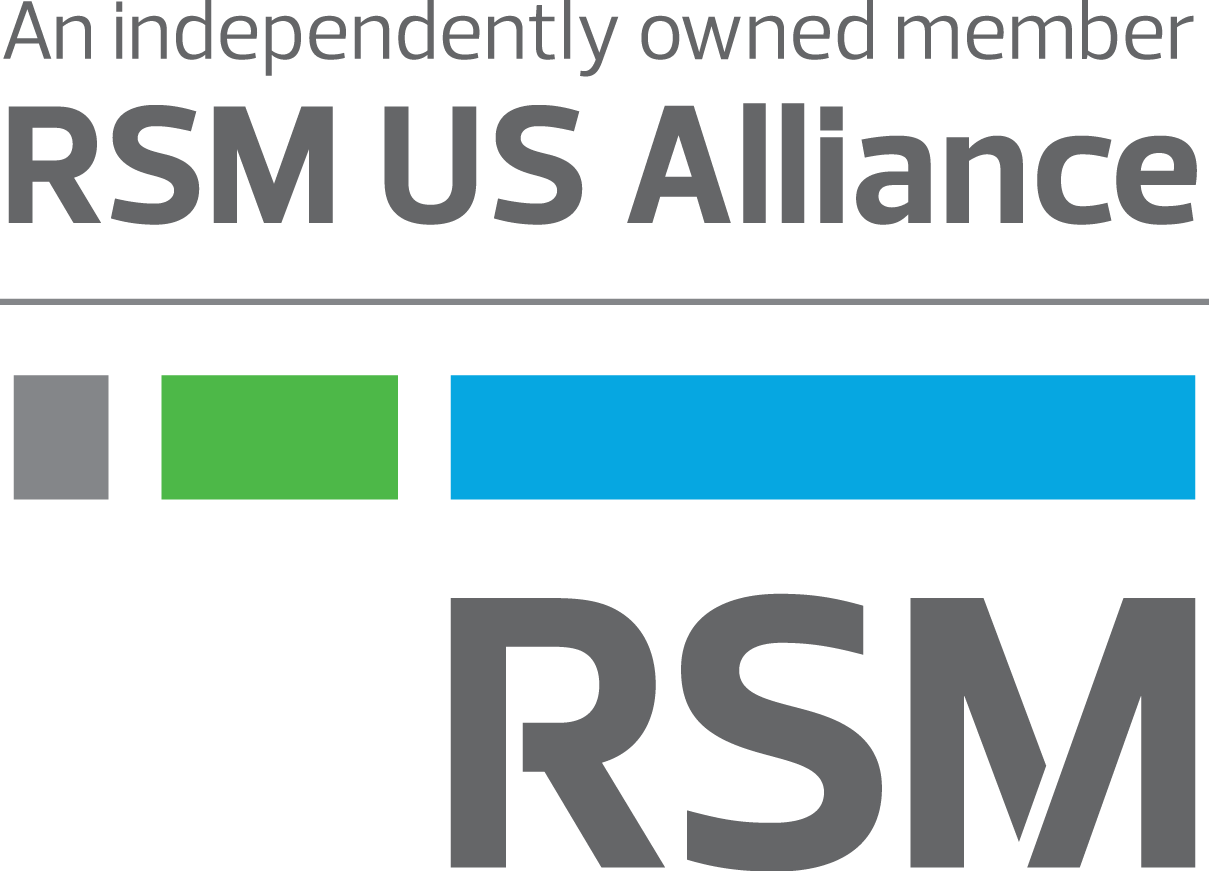
South Dakota drops Wayfair transaction threshold
TAX ALERT | February 10, 2023
Authored by RSM US LLP
Executive summary: South Dakota eliminates economic nexus transaction threshold
South Dakota is the latest state to streamline its economic sales tax nexus provisions by providing more certainty for taxpayers making sales into the state. By eliminating the transaction threshold, taxpayers can more easily identify when remote seller nexus is established through sales activity. About half of the states rely exclusively on a gross sales or receipts threshold for remote nexus determinations while the other half generally provide that nexus can be established through the number of transactions or through total sales over a dollar threshold.
South Dakota drops Wayfair transaction threshold
On Feb. 9, 2023, South Dakota Gov. Kristi Noem signed Senate Bill 30 eliminating the 200-transaction threshold from the state’s sales tax economic nexus law. Recall that in 2016, South Dakota was the first state to enact an economic sales tax nexus threshold requiring remote sellers to collect and remit sales tax if the seller made over $100,000 of sales or sold tangible personal property for delivery into the state in 200 or more transactions. The remote seller nexus provision was a direct response to Justice Kennedy’s call for a test case to reconsider the Quill v. North Dakota physical presence standard in his concurrence with the U.S. Supreme Court’s 2015 decision in Direct Marketing Association v. Brohl. Litigation over the provision culminated in the 2018 decision, South Dakota v. Wayfair, where the U.S. Supreme Court determined that economic presence was enough to satisfy the substantial nexus requirement of the Complete Auto Transit v. Brady test.
Transaction thresholds
A number of states have eliminated transaction-based sales tax nexus thresholds that were incorporated in original economic nexus standards, including California, Colorado, Iowa, Maine, North Dakota, Washington and Wisconsin. Many other states originally adopted economic nexus exclusively with a gross sales or receipts threshold. The elimination of the transaction threshold provides greater certainty and clarity for taxpayers evaluating their sales tax nexus footprint.
However, almost two dozen states still provide that either a transaction threshold or a receipts threshold can establish remote seller nexus without guidance on how the transaction threshold is calculated. The transaction threshold has continued to cause taxpayer and tax practitioner confusion due to the number of different scenarios and possible calculation methods. For example, does a single transaction include a single invoice, or are individual line items on an invoice each considered a transaction? Do multiple transactions of a single item count separately? Are transactions for a single item with multiple deliveries throughout the year counted the same as if the purchases were delivered at once? The states that continue to use the transaction threshold include Arkansas, the District of Columbia, Georgia, Hawaii, Illinois, Indiana, Kentucky, Louisiana, Maryland, Michigan, Minnesota, Nebraska, Nevada, New Jersey, North Carolina, Ohio, Rhode Island, Utah, Vermont, Virginia, West Virginia and Wyoming. Connecticut and New York require that both a sales threshold and a transaction threshold are exceeded to establish remote seller nexus.
Some taxpayers may be well-positioned to argue against a state’s assertion of nexus if the remote seller’s activity exceeds the transaction threshold but represents a small dollar total, for example, if a remote seller sold 201 widgets totaling 90 cents in a calendar year. Such an assertion could be violative of the Due Process Clause of the U.S. Constitution and/or multiple prongs of the Complete Auto Test under the Commerce Clause of the U.S. Constitution.
While not substantively challenged since Wayfair, taxpayers should recall that the decision neither established the 200-transaction threshold nor the $100,000 sales threshold as a constitutional minimum for economic sales tax presence. However, no state has considered lesser thresholds for transactions and every state uses at least a $100,000 sales threshold.
Takeaways
Noncompliance with economic sales tax nexus remains high in the middle- and small-market, even four years after the Wayfair decision. Changes in consumer behavior and the increase of e-commerce coupled with growing businesses can easily expose taxpayers to multistate sales and use tax and income tax compliance obligations.
Businesses must be prepared to address state tax nexus. Consider the following questions to help address sales tax nexus for remote sellers:
- Where are the sales and services sold?
- How many and what dollar amount of sales and services are sold into each state?
- What was the nexus footprint prior to the Wayfair decision?
- How do the states treat the taxability of the products and services?
- How does the business maintain and track exemption certificates?
- Has the business considered a technology, automation or co-sourcing solution?
- How does the business ensure the correct tax rate is collected and how are rate changes tracked and updated?
- How does the business stay up to date on new and amended nexus legislation and regulations?
Taxpayers without a plan to address economic nexus requirements are creating significant exposure to multistate tax liabilities, interest and penalties that could be especially devastating to small and middle-market businesses. Taxpayers with questions about economic nexus and multistate filing should consult with their state and local tax advisers.
This article was written by David Brunori, Anna Cronic, Mo Bell-Jacobs and originally appeared on 2023-02-10.
2022 RSM US LLP. All rights reserved.
https://rsmus.com/insights/tax-alerts/2023/South-Dakota-drops-Wayfair-transaction-threshold.html
The information contained herein is general in nature and based on authorities that are subject to change. RSM US LLP guarantees neither the accuracy nor completeness of any information and is not responsible for any errors or omissions, or for results obtained by others as a result of reliance upon such information. RSM US LLP assumes no obligation to inform the reader of any changes in tax laws or other factors that could affect information contained herein. This publication does not, and is not intended to, provide legal, tax or accounting advice, and readers should consult their tax advisors concerning the application of tax laws to their particular situations. This analysis is not tax advice and is not intended or written to be used, and cannot be used, for purposes of avoiding tax penalties that may be imposed on any taxpayer.
RSM US Alliance provides its members with access to resources of RSM US LLP. RSM US Alliance member firms are separate and independent businesses and legal entities that are responsible for their own acts and omissions, and each are separate and independent from RSM US LLP. RSM US LLP is the U.S. member firm of RSM International, a global network of independent audit, tax, and consulting firms. Members of RSM US Alliance have access to RSM International resources through RSM US LLP but are not member firms of RSM International. Visit rsmus.com/aboutus for more information regarding RSM US LLP and RSM International. The RSM(tm) brandmark is used under license by RSM US LLP. RSM US Alliance products and services are proprietary to RSM US LLP.

VPTAX is a proud member of RSM US Alliance, a premier affiliation of independent accounting and consulting firms in the United States. RSM US Alliance provides our firm with access to resources of RSM US LLP, the leading provider of audit, tax and consulting services focused on the middle market. RSM US LLP is a licensed CPA firm and the U.S. member of RSM International, a global network of independent audit, tax and consulting firms with more than 43,000 people in over 120 countries.
Our membership in RSM US Alliance has elevated our capabilities in the marketplace, helping to differentiate our firm from the competition while allowing us to maintain our independence and entrepreneurial culture. We have access to a valuable peer network of like-sized firms as well as a broad range of tools, expertise, and technical resources.
For more information on how the VPTAX can assist you, please call us at (408) 278-8370.